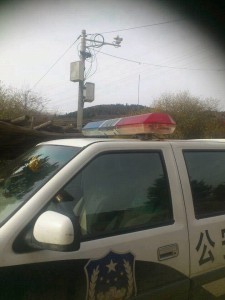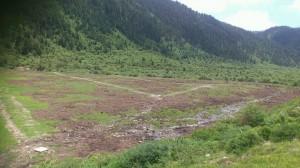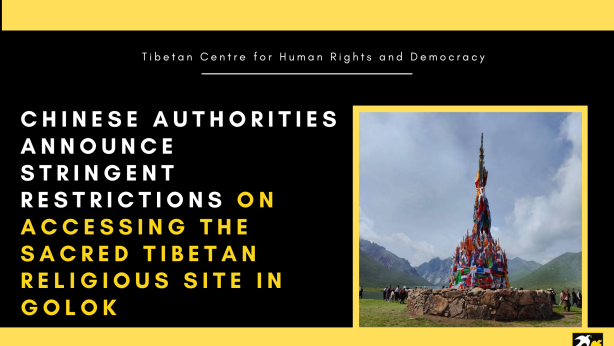China appropriates Tibetan farmlands in the name of hydropower projects
A major land grab by Chinese authorities is being reported by local sources in Muge area in Sungchu (Ch: Songpan) County in Ngaba (Ch: Aba) Tibetan and Qiang Autonomous Prefecture, Sichuan Province, in the Tibetan province of Amdo.
According to local accounts along with some photographs received by TCHRD, the Chinese authorities have appropriated all farmlands in Achu nomadic camp (Tib: dewa) in lower Muge area in the name of hydropower projects to generate electricity. (A dewa or rural nomadic camp at its smallest generally consists of about 30 to 40 families and over 100 to 200 families in bigger ones.)
In Achu camp, traditional grasslands used by local herds for grazing in autumn have been appropriated.
More farmlands have also been confiscated in neighbouring A-ngag and Agon camps for ‘development’ projects.
The Chinese authorities gave no explanation for the large scale land-grab. The local Tibetans who lost their land were not consulted before, during or after the execution of the so-called development projects. Their participation and agency in shaping policies conducive to local conditions were denied.
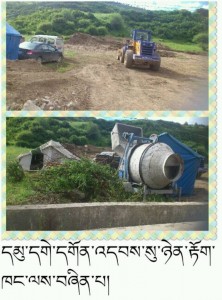
Alongside the increased land-grab, the security situation has also gained added momentum with new police stations being built in both upper and lower areas of Muge. Sources say each of the three townships in Muge now has at least 3 police stations as opposed to at least 2 in the past.
At the time of reporting, a new police station is being built near Muge Monastery. The initial plan was to build the police station within the monastic compound. But the plan was changed when the authorities met with stiff resistance from the senior monastic staff.
New information received by TCHRD in October 2013, police patrolling has increased at Muge Monastery with surveillance cameras installed in and around the premises of the monastery. At least three surveillance cameras were spotted by our sources: one installed above the door of the main prayer hall of the monastery, another at the entrance of the Jamyang Shepa residence which also houses the residential quarters of the monastery’s spiritual head and other officials, and the third was installed at a nearby hillock where local Tibetans and monks gather to hold prayers and other religious ceremonies.
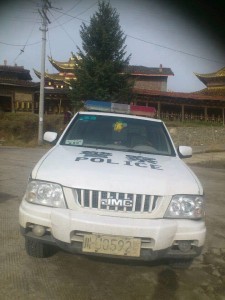
The birthplace of scholar Muge Samten, now a famed pilgrimage site, is located just about half a kilometre away from Muge Monastery.
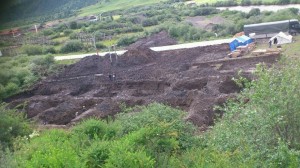
The upcoming police station has heightened concerns and tension among local Tibetans in Muge.
There is no report available immediately on whether any displacement has occurred during confiscation of farmlands, particularly in Achu camp, which lost all farmland. No information is available on official compensation given to the aggrieved families.
Local sources report that Tibetans are facing enormous challenges in freely expressing their grievances given the violent official reprisals.
